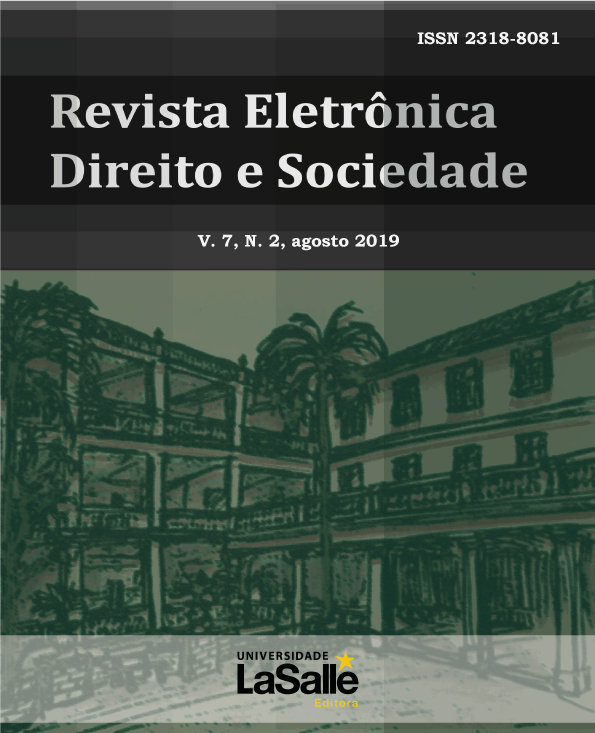Biotechnological advances and their reflections: a case study on nationality in the light of human rights
DOI:
https://doi.org/10.18316/redes.v7i2.5007Keywords:
Human Rights, USA, Nationality, Assisted Reproduction.Abstract
Medicine has undergone several transformations in order to improve people’s quality of life. As an example, assisted human reproduction is cited. This technique reveals its importance in that it allows individuals with fertility-related dysfunctions or even homoaffective couples to have children. But it is not only: it also reveals itself as a resource to those who intend to plan the interval or the time in which they will have their descendants. However, although widely used, it appears that the ethical-legal problems arising from this procedure have not been sufficiently addressed by law, either by the absence of regulation or by the consequences that have arisen, not previously foreseen. This is what happens when there is a confrontation between legal and administrative decisions and fundamental rights protected by international declarations. In this scenario, two cases of the United States of America will be analyzed, in which, once, citizenship was granted only to one of two brothers (twins), based on genetic factors and disregard of affective bonds. To do so, an analysis will be made of assisted reproduction techniques and their regulation in Brazil, as well as in the United States of America. This, in order to correlate the issues related to American citizenship and the human rights involved in the situation in reference. The method adopted is the deductive, based on the doctrinal and legislative aspects pertinent to the theme, both nationally and abroad.
Downloads
Published
Issue
Section
License
Authors who submit their manuscripts for publication in the “REDES” Magazine agree to the following terms:
The authors claim to be aware that they retain copyright by giving “REDES” the right to publish.
The authors declare to be aware that the work submitted will be licensed under the Creative Commons Non-Commercial Attribution License which allows article sharing with acknowledgment of authorship and publication in this journal.
The authors declare to be aware that by virtue of the articles published in this journal have free public access.
The authors declare, under the penalty of the law, that the text is unpublished and original and that they are aware that plagiarism has been identified, plagiarized authors will be informed - willingly, to take legal action in the civil and criminal sphere - and, plagiarists will have their access to the magazine blocked.
The authors state that - in case of co-authoring - all contributed significantly to the research.
Authors are obliged to provide retractions and (or) corrections of errors in case of detection.
The authors are obliged not to publish the text submitted to “REDES” in another electronic journal (or not).
The Electronic Journal Law and Society - REDES - is licensed under a Creative Commons License. Attribution-NonCommercial 4.0 International.Based on work available at "http://revistas.unilasalle.edu.br/index.php/redes/about/submissions#copyrightNotice".
Permissions in addition to those granted under this license may be available at http://creativecommons.org/.

